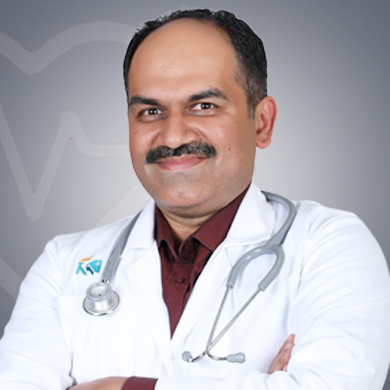
Surgical Oncologist
Apollo Hospitals Bannerghatta , Bangalore, India22 Years of experience
Speaks: English
Some of the conditions surgical oncologist Anil Kamath treats are:
Some women require surgery to remove the entire breast through mastectomy. The surgeons remove the breast tissues including nipple and the skin and the tissues that have the chest muscles. You may opt for breast reconstruction after a mastectomy.
People may experience both symptoms and signs of cancer, and this shows that something is going abnormal in the body. Also, recognizing these indicators could lead to an earlier diagnosis of the disease and possibly of better treatment. When cancer grows, the organs, nerves, and blood vessels are a little compressed, which can lead to signs and symptoms. Although there may be different symptoms in different types of cancer, some general symptoms of cancer include:
The operating hours of Dr Anil Kamath is 11 am to 6 pm (Monday to Saturday), The doctor does not see patients on Sunday.
Dr Anil Kamath performs a wide variety of procedures for cancer treatment. Some of these are
The surgeon assesses the condition of the patient before performing any procedure to understand the risk associated with the procedure. The neurologist is popular for their high success rate and patient-centric approach which helps fast recovery of the patient. With vast experience in performing even the most complex cases with high precision and accuracy, the doctor follows medical protocols. Minimally invasive surgery and open surgery are two ways of doing cancer surgery. In open surgery, a large incision is made to remove the tumor. In minimally invasive surgery, surgeons make a few small cuts to remove the tumor. The common techniques for minimally invasive surgery are laser surgery, cryosurgery, robotic surgery, laparoscopy, cryosurgery.

Share Your Experience about Dr. Anil Kamath

Surgical oncologists are specialists who have received training in the diagnosis and treatment of cancer through surgery. A surgical oncologist performs procedures like biopsy and surgery to remove cancerous tissues. In some cases, a surgical oncologist performs surgeries to find out parts of the body where cancer has spread. In special cases, the surgeons do preventive surgeries. Sometimes, additional treatments like chemotherapy or radiation follow surgery. In these cases, surgical oncologists play an important role in providing care to the patients post-surgery.
The tests required before and during the consultation by a surgical oncologist include:
In most cases, surgical oncologists need to perform a biopsy in order to diagnose cancer. In this procedure, the doctor removes a part of the body tissues to examine under a microscope. The doctor then does other tests to check if the tissue is cancer.
You should see a surgical oncologist in case your primary care doctor refers you to one. The doctor may also tell you to visit a surgical oncologist for the diagnosis of cancer. Some specialized general surgeons can also perform surgery on various types of cancer. Below are some situations when you need to see a surgical oncologist: